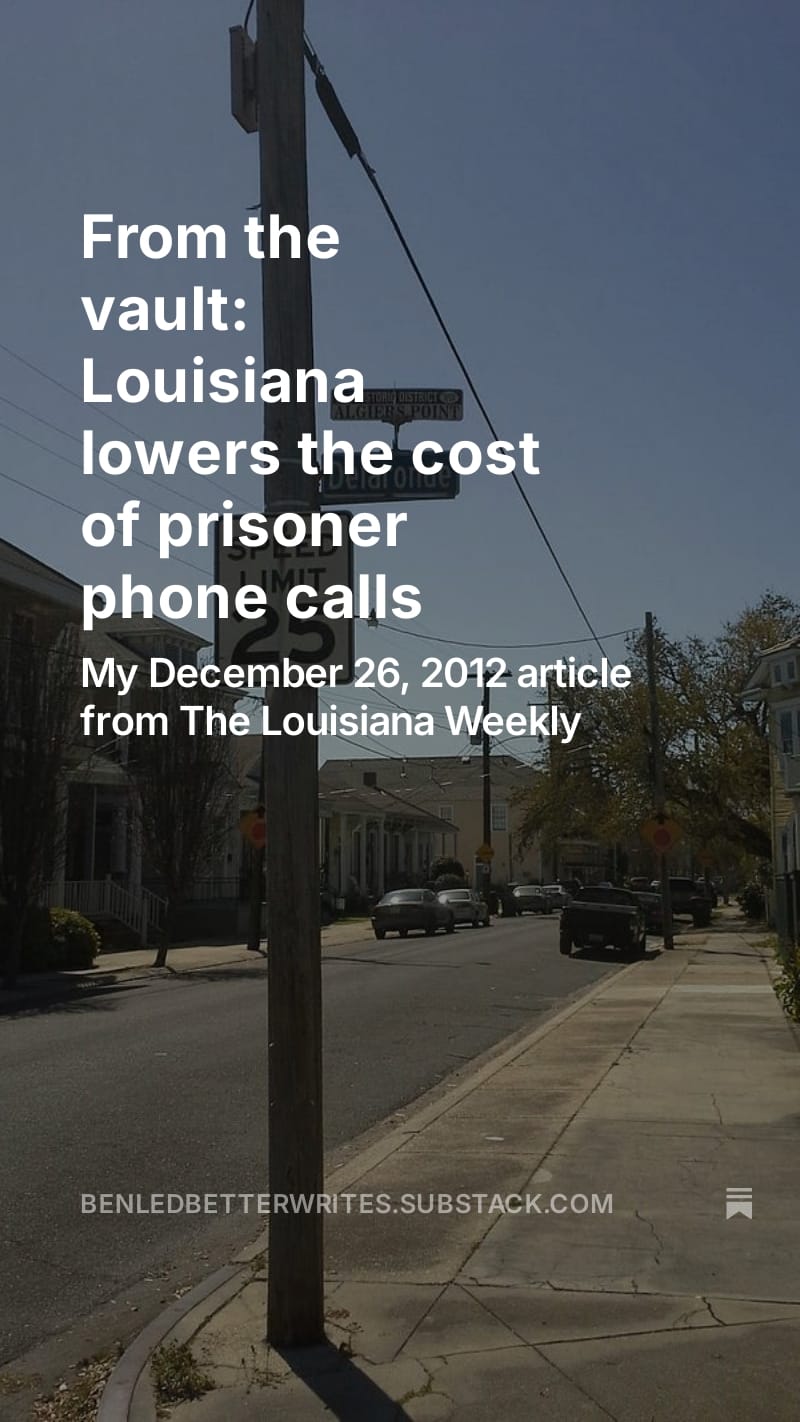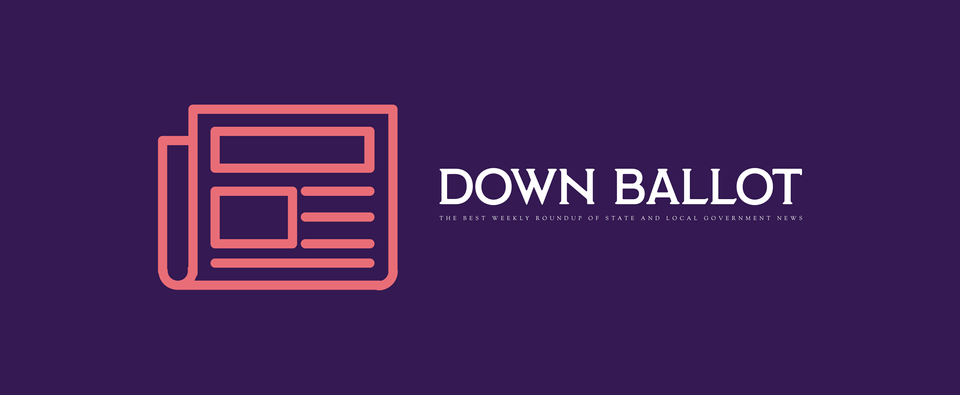From the vault: Louisiana lowers the cost of prisoner phone calls
My December 26, 2012 article from The Louisiana Weekly

Editor’s note: Considering this article I wrote is from 2012, things might have changed. But, this is an important issue since only nine states didn’t earn revenue from prisoner phone calls at the time I wrote the story for The Louisiana Weekly.
The cost of inmate phone calls will be getting cheaper for Louisiana families.
The Louisiana Public Service Commission recently voted on changes that lowered the rates of phone calls originating from jail by 25 percent.
Down ballot is a reader-supported publication. To receive new posts and support my work, consider becoming a subscriber.
The vote comes on the heels of the passage of the National Association of Regulatory Commissioners’ resolution on the cost of prison phone calls, as well as an announcement from the Federal Communications Commission that FCC Chairman Julius Genachowski is circulating a further notice of proposed rule making for a vote on the issue. These developments mark the first step forward in a ten-year national effort to make the cost of phone calls made by prisoners more affordable.
However, this only applies to phone calls a prisoner makes to family members, legal counsel, clergy and certain government agencies.
This means the first minute of a qualifying call will cost $1.69 and $.05 each additional minute, resulting in a 12-minute call costing $2.24. However, this could take up to two years for this change to take effect for prisons that have current contracts with vendors. The current rate is $.30 per minute, which means a 12-minute call costs $3.60.
“This is a big victory for fairness in the treatment of thousands of Louisiana families with members who are incarcerated,” PSC Chairman Foster Campbell said in a written statement. “The exorbitant rates they have been paying to speak by telephone with loved ones behind bars will now come down by a third.”
Louisiana is the ninth state in the nation to reform inmate telephone rates, according to Campbell’s executive assistant and spokesperson Bill Robertson. He said Louisiana will have the fourth-lowest rate in the South.
“It’s going to mean relief for a lot of families,” Robertson said. “We’re just bringing the scales a little closer to balance. It’s not easy for these families.”
Robertson said there might be some fine-tuning to the recently approved reform. If the phone companies feel like they need to re-implement the add-on fees that were struck down, they can ask the PSC to revisit the issue.
Campbell’s office worked on the issue for a year and a half and was pleased with the vote that might not have happened if it had been delayed another month, because key supporter Jimmy Field is retiring from the commission this month.
Campbell of Shreveport and Field, of Baton Rouge led the in-state charge to reduce the phone rates that prisoners’ families are forced to pay. Their efforts came after a PSC study found vendors are required to pay up to 55 percent of gross revenue to sheriff’s offices and the state – creating a major incentive for both the state and Global Tel*Link, the prison phone provider, to ramp up pricing for prison phone calls.
Last month, the PSC deadlocked on the issue when Commissioner Lambert Boissiere of New Orleans changed his position, citing last-minute concerns raised by the Louisiana Sheriff’s Association. However, Campbell said the LSA had close to a year to respond to the findings of the PSC study, but it has yet to act.
Despite claims from the LSA that a reduction in the cost of prison phone calls could have a negative impact on public safety, the PSC found that reducing the phone rates by 25 percent would have no impact on law enforcement’s ability to screen calls. “Research tells us that making calls from prison affordable and keeping families connected reduces the likelihood of people returning to prison,” said Paul Wright, Director of Prison Legal News. “Lowering the state recidivism rate of nearly 50 percent would cut state costs far more in the long term than would continuing to profit off the backs of vulnerable consumers.”
Norris Henderson runs the New Orleans-based nonprofit organization, Voice of the Ex-Offender, which aims at ending discrimination against those previously incarcerated. Henderson is a former Angola inmate and said while he is appreciative of the work of the PSC on the issue, more work needs to be done.
“It’s very important,” Henderson said. “It’s the first step of a thousand mile journey.”
Henderson said for people that don’t have family, they have an extended family, which may or may not be related to the inmate. He is working with someone now who is receiving help from a former judge and the calls between that judge and the inmate might not be covered under the new rates.
Down ballot is a reader-supported publication. To receive new posts and support my work, consider becoming a subscriber.



Comments ()